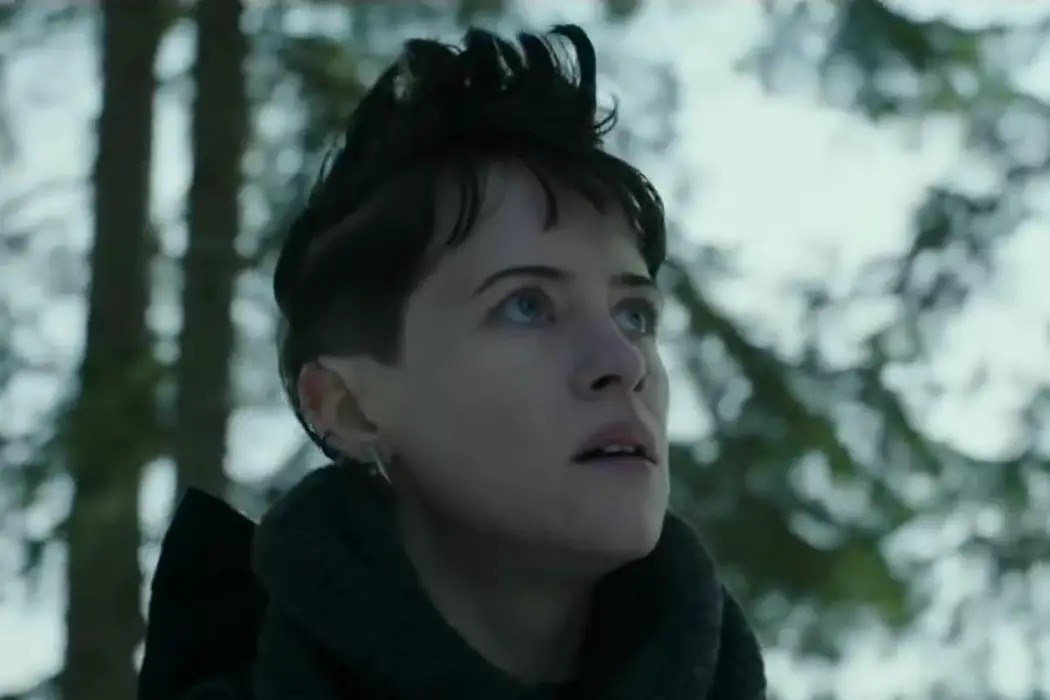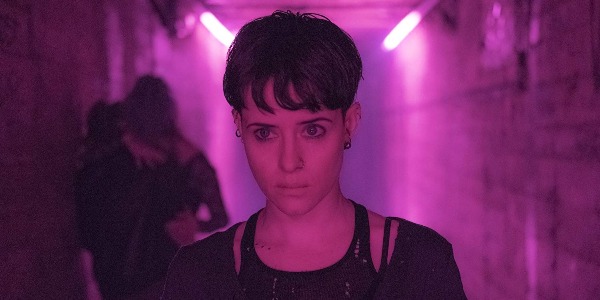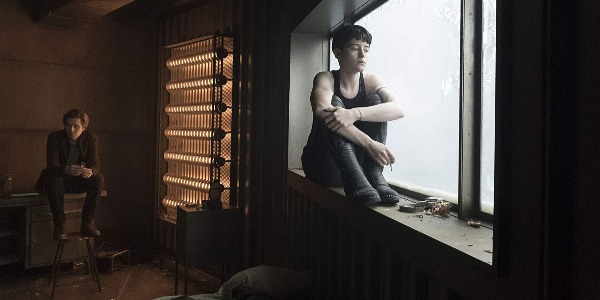THE GIRL IN THE SPIDER’S WEB: A Slick But Empty Endeavor

Alex is a film addict, TV aficionado, and book lover.…
The character of Lisbeth Salander has been in the cultural lexicon for over a decade now, generating discussions and think pieces that blew her up into something even more unwieldy than she was in the Millennium book series. Debuting in The Girl with the Dragon Tattoo (a softened title from the original Swedish, which translates to Men Who Hate Women), she was presented as a surly but brilliant hacker with a penchant for punk getup and an ethically unperturbed curiosity. The books operate in a world where everyone is up to no good, giving Salander a deluge of people to investigate and take down.
However, she was never a simple badass avenger. Author Stieg Larsson placed her as a bystander to massive political and cultural affairs, ones that defined her as a victim of numerous institutional wrongs. A symbol as much as a character, her accoutrements made her nearly impossible to summarize or even get a good handle on, and yet the series made its most interesting creation share space with elaborate, lurid mysteries and the indulgent author surrogate Mikael Blomkvist.
All of this means that, despite the book series being a massive success, film adaptations have always been fraught endeavors. Capturing the chilly cultural critiques without indulging in the excess proved too difficult for most attempts, particularly David Fincher‘s The Girl with the Dragon Tattoo, a high-profile release from 2011 that failed to launch a series.
The Girl in the Spider’s Web is the latest effort at making Salander into a box office cash cow, jumping ahead to the fourth book in the series (the first not written by Larsson). It’s a strange choice that will probably leave those casually acquainted with the series unable to fill in the gaps, but it allows the filmmakers to morph Salander into a more action-friendly persona.
Why So Cold?
This film retains the eternally snowy setting of Stockholm and the fashionably grimy aesthetic Fincher reveled in, but like that movie, Spider’s Web seems to misunderstand the reason this milieu fits the series. Both versions amp up the pulp, here spending most of its time walking us through the convoluted jockeying between governments and crime organizations for a barely-explained computer program that can control the world’s nuclear arsenal. It’s a surprisingly generic plot that represents how surprisingly generic Spider’s Web is, draining the film of the inscrutable spark that makes the original three books so captivating.

The bundled up characters should serve a multifaceted purpose, reflecting both their isolated nature and the unforgiving world they inhabit. Salander and Blomkvist are both mistrusting, emotionally damaged creatures, and they have very good reasons to be that way. Yes, Salander’s leather-clad, spiky-haired persona is striking on screen, but it’s just that: a persona. It’s the armor she puts on when she goes into dangerous situations, and while this particular point gets minor nods throughout Spider’s Web, director Fede Alvarez doesn’t have the restraint to adequately hold the chilly cool for big moments.
Alvarez made his name with Don’t Breathe, a horror film so unabashedly slimy that I felt like taking a shower immediately after finishing it. He brings the same level of ruthless style to this film, filling it with an excess of slick shots and unneeded flourishes. The indulgence makes the style meaningless, so while it’s hard to fault all the technical work that does look good, it becomes easy to point out its numbing effect as a detriment.
Who Signed Up For This?
The big news going into production for Spider’s Web was the casting of Claire Foy as Lisbeth Salander, a move that seemed like a calculated pushback against her star-making role as Queen Elizabeth II in The Crown. Turns out there is more overlap between the two characters than you would expect, because while there’s lots more leather and tattoos to Salander, both share a tacit way of communicating. Foy’s greatest strengths are in the quiet moments, and she does her best here to fill in the gaps of her underwritten role. Still, there’s only so much she can do in a film that’s not overly concerned with its characters, which leaves not only Foy out to dry but the rest of the stellar cast as well.

Joining her are a cavalcade of familiar faces, including Stephen Merchant as the creator of the nuclear computer program, Lakeith Stanfield as an NSA agent, Sverrir Gudnason as Blomkvist, and Sylvia Hoeks as Lisbeth’s estranged sister. None of them have much to do, but they carry out the chess piece movements of their characters without drawing too much attention to themselves. More distracting is the likes of Vicky Krieps in a blink-and-you’ll-miss-it part and Claes Bang as a generic tough guy, both of which feel severely underused after showy roles in Phantom Thread and The Square, respectively.
To be clear, none of them are bad in their parts, it’s just that their characters are drawn so thinly that actors of their stature aren’t really required. Sure, get someone competent for Lisbeth, but even she is a shadow of her usual complexity in this film. I wouldn’t go so far as to say these people wasted their time; it’s perfectly fine for great actors to do unassuming thrillers, but flashing this many respected names does promise a more rigorous film than Spider’s Web attempts to be.
Are You Familiar With The Predecessors?
The obvious problem with adapting the fourth book in the series as a franchise reboot is that audiences might not be familiar with what happened in the previous three stories. After all, there were no English-language film versions of books two and three, and god knows Americans don’t watch foreign language films or read books (calm down, I’m sort of joking).

The plot of Spider’s Web does stand on its own, but since it doesn’t bother with any heavy lifting in terms of character or theme, a lot of the small, interesting points will likely go over the heads of the uninitiated. Books two and three really filled out Lisbeth’s backstory with her family, something this film continues by delving into her relationship with her sister. Without knowing just how messed up and damaging their family was, it’s probable that the relationship at this film’s core will seem flat. Having background knowledge does allow the viewer to apply layers that the film doesn’t necessarily work to bring out, so it’s likely the movie will be more satisfying for those familiar with all the preceding material than those coming in with no knowledge or having just seen Fincher’s film.
Conclusion: The Girl in the Spider’s Web Continues The Series’ Slide Into Insignificance
Another cinematic stab at Lisbeth Salander will always appeal to the character’s preexisting fans, but Spider’s Web does nothing to show the uninitiated what they’re missing. This Lisbeth is drab and uninspiring, altered to fit into a generic and not very smart movie. It’s a big missed opportunity, but even the scraps from this world have a certain cold charm.
What did you think of Girl in the Spider’s Web? How do you think it fits into the larger series? Let us know in the comments!
The Girl in the Spider’s Web was released in the US on November 9th, 2018. It will be released in the UK on November 21st, 2018. For international release dates, click here.
Does content like this matter to you?
Become a Member and support film journalism. Unlock access to all of Film Inquiry`s great articles. Join a community of like-minded readers who are passionate about cinema - get access to our private members Network, give back to independent filmmakers, and more.
Alex is a film addict, TV aficionado, and book lover. He's perfecting his cat dad energy.












